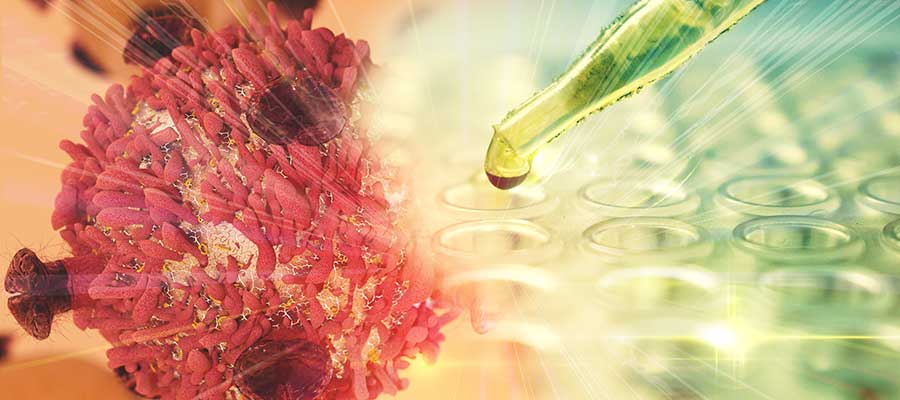ONCOLOGY DISEASE RESEARCH AT GIS

Cancer is the leading cause of death in developed countries, and the global cancer burden is expected to increase. In Singapore, one in four to five people are expected to develop cancer in their lifetime. While significant progress has been made in the development and clinical application of therapeutics for specific types of cancers, long-term remission for most cancers is rare. Additionally, because early detection remains elusive, cancer treatments are often used late in disease progression and are therefore expensive, imprecise, and ineffective.
There are three key roadblocks in oncology, which lead to the imprecise deployment of treatment modalities and therapeutics that result in ineffective responses:
- The molecular trajectory of cancer progression is poorly mapped out for many types of cancer.
- The molecular routes (and vulnerabilities) of cancer progression are poorly modelled in human-relevant physiological systems.
- Clinical trials of biologically informed interventions therapeutics designed to intercept key molecular bottlenecks are scarce.
The costs of new drug development and drug administration are expensive, but they do not ensure optimal treatment responses, in part due to variations in the molecular and genetic features across patient tumours and even within individual tumours. Personalised cancer genomics may provide clinical solutions by mapping the evolutionary and clinical trajectories of tumours for better prognosis, intervention, and the deployment of appropriate treatments. Treatments of the future will likely be anchored upon a comprehensive understanding of the molecular, evolutionary, and adaptive nature of individual tumours to deploy suitable therapeutics in the “right patient” context (right drug, right patient, right time). Treatment may involve complex cocktails of drugs that are dynamically modified as tumour characteristics change to ensure maximal efficacy and durability. Thus, the future of oncology is likely to be driven by “patient centricity” and healthcare provision from the patient perspective.
A Legacy of Excellence in Cancer Genomics
Since its founding in 2000, GIS has retained cancer research as a core disease focus. There is a substantial number of cancer research labs within GIS and associated external labs. Our key strengths are:
- Computational Biology and Big Data Analytics - With the capacity to produce, host, and analyse large cancer datasets, GIS also has world-leading expertise in regulatory genomics, systems biology, algorithm and tool development, single-cell genomics and biology, tumour heterogeneity and tumour evolution.
- Functional Genomics - This area is a lynchpin of cancer research; in-house capabilities include the functionalisation of genes (epigenetic factors, metabolic enzymes, transcription regulators, kinases) involved in resistance and metastasis and the regulation of the tumour-microenvironment. Applications include target discovery, early therapeutic development, biomarker discovery, and liquid biopsies.
- Clinical Genomics - Aided by close collaboration with clinical partners, GIS has sequenced and analysed tumours from local (and overseas) healthcare institutions through various programmes. Indications studied include lung cancer, gastric cancer, liver cancer, viral-driven cancers, lymphoma, and others. We also have expertise in cancer genetics and epidemiology. GIS is the custodian of cancer genomic datasets from different cancer types/programmes.
Our starting hypothesis is that every patient’s tumour is potentially unique. We seek to learn from a cancer patient’s genetics, disease history, treatment responses, and progression to illuminate and understand disease trajectory. The endpoint is a precision-based, biomarker-based approach to treatment/intervention in the form of better drug selection, drug combination, patient stratification, and prediction of responses.
Contact:
Dr Tam Wai Leong
tamwl@gis.a-star.edu.sg
A*STAR celebrates International Women's Day

From groundbreaking discoveries to cutting-edge research, our researchers are empowering the next generation of female science, technology, engineering and mathematics (STEM) leaders.
Get inspired by our #WomeninSTEM
.png?sfvrsn=2e525642_5)